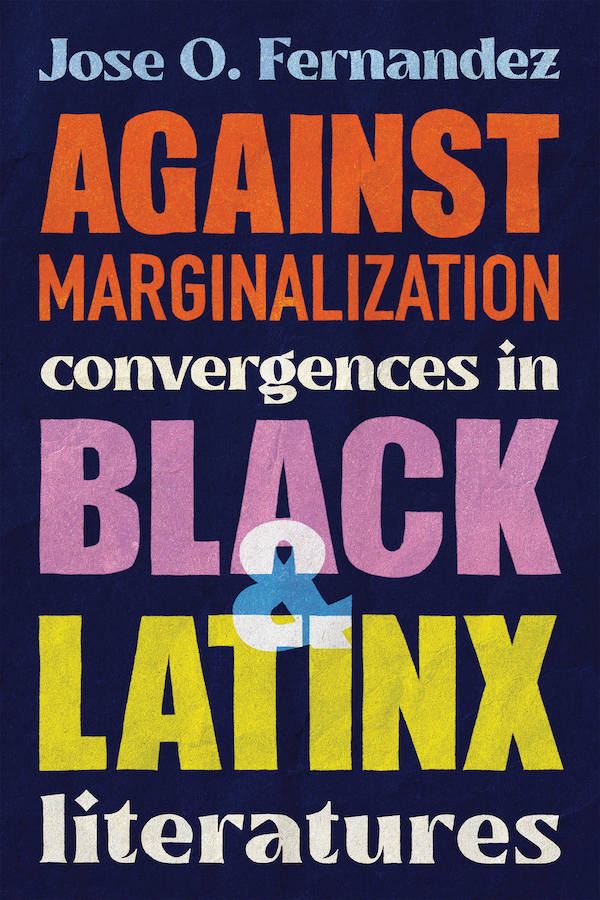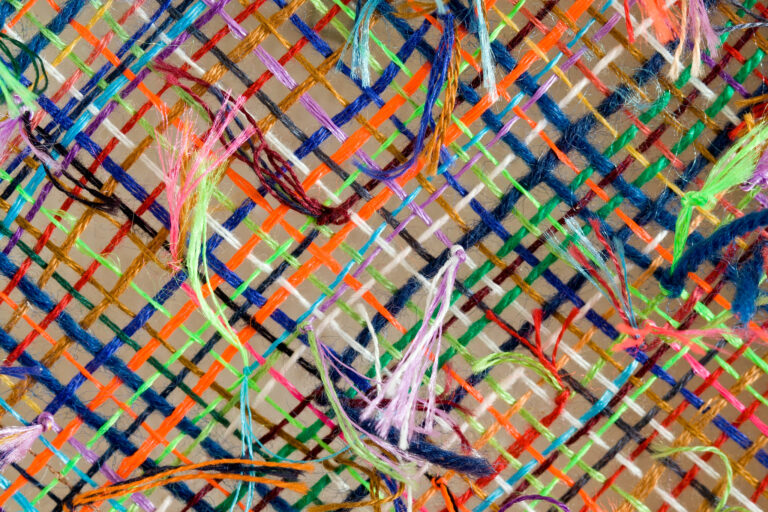Jose O. Fernandez’s Against Marginalization: Convergences in Black and Latinx Literatures is an innovative project that takes conversations about literary and cultural history in a new direction. Recognizing the efforts of Black and Latinx scholars in crafting distinct literary traditions and histories, Fernandez uses his book to argue for cross-ethnic literary studies and identify similarities between Black and Latinx traditions. This endeavor revolutionizes conversations about literary history of the United States and challenges narratives of exclusion and silencing. This book serves to show the importance of knowing the names of authors and artists, and the communities that fought for them, because they make up the fabric of US history. To learn those names next to Faulkner, Twain, Hemingway, Steinbeck, and Fitzgerald not only makes them part of American literary tradition but also spotlights their absence and exclusion in a way that expands the boundaries of “literary tradition.” This review takes seriously Fernandez’s project, which opens exciting avenues for cross-ethnic historic study while also examining opportunities for future study.
Keyword: literary studies
Review of Fates of the Performative: From the Linguistic Turn to the New Materialism by Jeffrey T. Nealon (University of Minnesota Press)
Jeffrey T. Nealon’s Fates of the Performative: From the Linguistic Turn to the New Materialism crafts a history of performativity within contemporary theoretical thought. Through the structure of a genealogy, Nealon examines the nascence of performativity and its intersection with biopolitics and neoliberalism to predict not only the future of the performative, but also to imagine new avenues of criticism within the humanities.
From Gwangju to Brixton: The Impossible Translation of Han Kang’s Human Acts
This article theorizes the relationship between trauma and translation through a close reading of Han Kang’s Human Acts (2016) and its complex narrating of the Gwangju Democratization Movement of 1980. I engage with the novel through scholarship on state-sanctioned violence, the politics of memory and Korean and Black literary and cultural studies. I do this to consider how the massacre of Gwangu’s residents by their own government is made possible by earlier histories of occupation and imperial violence in the Korean peninsula. I then turn to the Korean edition of the novel to address what emerges outside of the English translation. Here, I rely on my own language skills to read, translate and direct attention to what is lost in Deborah Smith’s published translation of Han’s novel. Specifically, I argue that Smith’s version of Human Acts actively works against Han’s subversive articulation of the elusiveness of subjectivity, the rending of the world vis-à-vis violence, the possibilities afforded by opacity and the dilemma of what it means to write about “one’s own” historical trauma. In an attempt to reflect critically on what it might mean to live in the ongoing ripples of such traumas, I offer a text that blurs autobiography, travel writing, Black Studies, and literary analysis, crafting something that may be situated under the aegis of cultural studies and alongside what Gloria Anzaldúa names an autohistoria-teoría and what Crystal Baik calls a diasporic memory work.
Review of Poetry and Animals: Blurring the Boundaries with the Human by Onno Oerlemans (Columbia University Press)
Onno Oerlemans’s Poetry and Animals: Blurring the Boundaries with the Human offers a wide-ranging exploration of the different ways animals figure in poetry. Grounded in close readings of selected poems, the book considers in turn poetry that treats animals as allegorical figures, symbols of nature, representatives of a species, and individual beings. Oerlemans argues that reading poetry about animals models how to cultivate careful attention to the natural world. He also argues that poetry can complicate the divide between humans and other animals. The book is recommended for scholars embarking on animal studies projects and for use in the classroom.
Review of Fire and Snow: Climate Fiction from the Inklings to Game of Thrones by Marc DiPaolo (State University of New York Press)
Marc DiPaolo’s Fire and Snow engages with the burgeoning ‘cli-fi’ genre which speculates on climate change themes and corollary effects. Through close examination of such diverse works as Suzanne Collins’s Hunger Games, Margaret Atwood’s MaddAddam trilogy, and “low-culture” films Snowpiercer and Mad Max: Fury Road, DiPaolo both argues in favor of non-partisan collective action against climate change and explores broader public engagement with environmental themes. Primarily a survey text, Fire and Snow nevertheless provides considered analysis of the relationship between authors, producers, and consumers in the dissemination of cli-fi messaging in popular culture.




